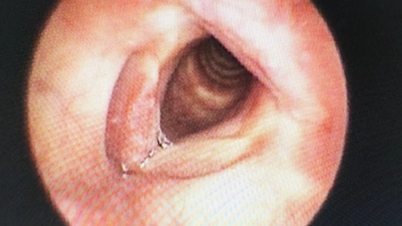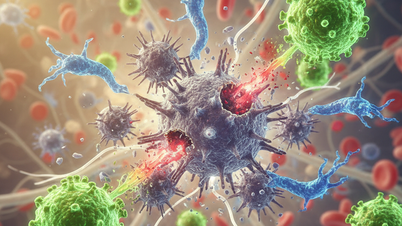Starting the day with health news , readers can also read more articles: Gout is getting younger and the risk of kidney damage; Doctors show how to prevent sudden death while jogging; This is the best amount of exercise...
4 seemingly harmless living habits that are leading to cancer
Medical research has found that cancer is not only caused by genetic factors and pollution, but also by long-term harmful behaviors. These behaviors cause DNA damage, thereby increasing the risk of many types of cancer.
The following lifestyles seem harmless, but if prolonged, will increase the risk of cancer.
Stress-increasing habits. Sleeping in, checking your phone as soon as you wake up, and multitasking all increase stress. Chronic stress not only affects your mental health, but also negatively impacts your immune system, increases inflammation, and changes your hormones. All of these factors contribute to your risk of developing cancer.
Prolonged stress increases the risk of many diseases, including cancer - PHOTO: AI
An analysis in the journal BMJ found a significant link between high psychological stress and the risk of dying from cancer. Although stress does not directly cause cancer, it indirectly influences health behaviors, such as smoking, poor diet and physical inactivity. These, in turn, contribute to an increased risk of the disease.
Not protecting your skin from the sun. Direct exposure to ultraviolet (UV) rays without protection such as sunscreen, hats, and sunglasses can cause DNA damage in skin cells. This is the leading cause of skin cancer, especially melanoma. In fact, just one severe sunburn doubles the risk of developing melanoma later in life. The next part of this article will be on the health page on August 7 .
New discovery: This is the best amount of exercise
Many fitness enthusiasts tend to go 'crazy' with their workouts in the belief that they will become healthier or have a more perfect body.
However, new research recently published in the scientific journal Health Data Science has found the answer to the above problem.
Moderate exercise is best for slowing down brain aging, protecting cognition and brain structure - Photo: AI
The study, led by Associate Professor Chenjie Xu from the Department of Public Health , Hangzhou Normal University, in collaboration with Tianjin University of Traditional Chinese Medicine and Tianjin Medical University (China), analyzed data from exercise monitors and brain MRI scans of 16,972 participants, aged 37-73.
To get accurate, objective results, researchers measured physical activity levels using wrist-worn accelerometers to quantify exercise levels from light, moderate to vigorous.
The results found that moderate exercise is best for slowing brain aging and protecting cognition and brain structure. Conversely, too little or too much exercise can be counterproductive. The next content of this article will be on the health page on August 7.
Sudden death while jogging: Doctor shows how to prevent it
In recent years, the number of healthy young people suddenly dying while jogging or exercising has been increasing.
Many unfortunate cases lead to immediate death, causing concern and raising questions about the potential risk factors for this incident. Here, Dr. James P. Daubert, a sports cardiologist at Duke University (USA), will explain the reasons why and how to prevent it to help you feel secure while running.
Most cases of sudden cardiac death in young athletes are due to undiagnosed and rare heart diseases - Illustration: AI
Sudden deaths in otherwise healthy and fit athletes may be due to an underlying cardiovascular problem, combined with strenuous physical activity.
Most cases of sudden cardiac death in young athletes are due to undiagnosed and rare heart conditions. These are underlying inherited heart conditions or genetic mutations, including:
- Heart muscle disorders, such as abnormal thickening of the heart muscle, are often inherited.
- The second inherited heart disease is an electrical heart problem, such as an abnormal heart rhythm or rare conditions like long QT syndrome, Brugada syndrome, and catecholaminergic polymorphic ventricular tachycardia.
- Myocarditis weakens the heart muscle.
- Certain congenital heart diseases — heart defects present at birth — can cause sudden cardiac arrest, such as congenital abnormalities of the coronary arteries that block blood flow to the heart, according to the health news site Health Xchange.
Doctors say: If stimulated and triggered, the above 4 cases can cause the heart to suddenly stop beating. Start your day with health news to see more content of this article!
Source: https://thanhnien.vn/ngay-moi-voi-tin-tuc-suc-khoe-4-thoi-quen-de-dan-den-ung-thu-185250807000846621.htm





































































































![Dong Nai OCOP transition: [Article 3] Linking tourism with OCOP product consumption](https://vphoto.vietnam.vn/thumb/402x226/vietnam/resource/IMAGE/2025/11/10/1762739199309_1324-2740-7_n-162543_981.jpeg)












Comment (0)